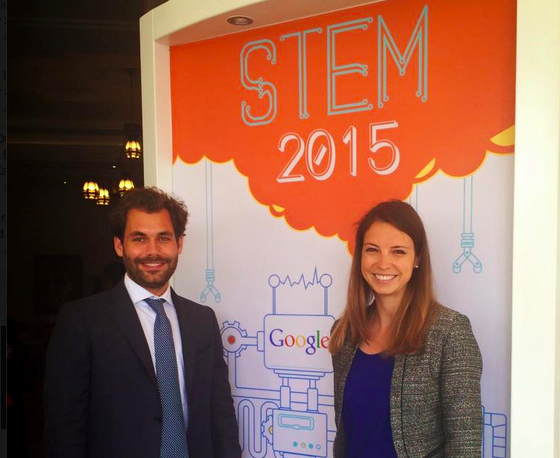During my MBA at INSEAD, I've had the chance to take classes at the Abu Dhabi campus and do projects related to the UAE's move towards a knowledge-based economy. In order to have a sustainable industry based on technology and innovation, a trained workforce is needed to feed it. Science, technology, engineering, and math (STEM) education is crucial to foster a culture of innovation. Students have to gain interest in STEM at an early level to then choose to study it at university and form a career in STEM.
While in Abu Dhabi last week, I participated in the Google STEM Forum, also hosted by the Al Bayt Mitwahid Association. The was event aimed at bringing policymakers, technology companies, educators and non-profits together to promote innovation in science and technology through partnerships in education, programs, and research. (Read more about the event here.)
My INSEAD classmate, David Nothacker, and I had the opportunity to present our class project on STEM, in which we analyzed the culture, education, infrastructure, incentives, industry, and governance of STEM in different countries. We derived best practices from each of these levers to gain insights for Abu Dhabi and the UAE in transitioning towards a knowledge-based economy.
We also learned about the STEM education initiatives of Google in the region. In particular, they established an innovation hub in partnership with Al Bayt Mitwahid that gives students an opportunity to gain hands-on experience with robotics. This fosters a culture of innovation and gets kids excited about studying science and technology and pursuing careers in these fields. The video below sends a very inspiring message.


 RSS Feed
RSS Feed

